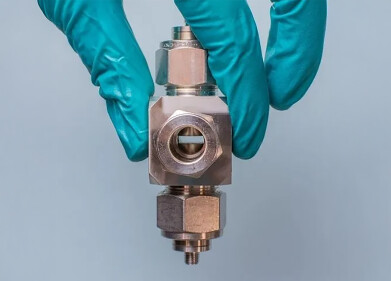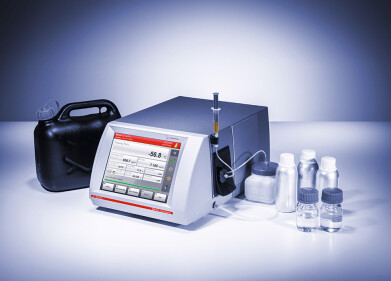Analytical Instrumentation
What Does Salt Do to Crude Oil?
Jun 11 2021
Formed over millions of years from organic materials, crude oil is laced with naturally occurring salts like magnesium, sodium chloride and calcium. Removing these mineral deposits is a crucial stage of the refining process, helping to enhance the quality of the finished product and minimise the risk of damage to equipment. Read on to find out more about what salt can do to crude oil and why it’s so important to remove traces of the mineral substance.
Fast-tracking corrosion
Salt deposits in crude oil are found in two forms - dissolved in emulsified water droplets or crystalised as a solid. Both can cause serious damage to the heavy-duty equipment used to refine crude oil. Salt hydrolysis produces hydrogen chloride, which accelerates corrosion and drastically reduces the longevity of petroleum refining equipment. Deposits can also build up over time and clog furnace tubes, lines and condensers. This leads to maintenance issues, which can result in downtime and loss of productivity.
Catalyst deactivation
Salts like magnesium, sodium chloride and calcium can deactivate catalysts used during the refining process. Catalyst poisoning can compromise efficiency, reduce yield and damage the quality of the finished product. The costs associated with catalyst deactivation can be huge, making salt monitoring an important step of the refining process.
Determining the distillation process
While distillation is usually the first step of the refining process, crude oil with high salt content may need to be desalted before being heated and transferred to the distillation column. Most refineries use the Standard Test Method for Salts in Crude Oil (ASTM D3230-19) [8] to determine concentrations and decide if desalting is necessary.
The US Energy Information Administration (EIA) forecasts that in 2021 global consumption of petroleum and liquid fuels will hit almost 100 million barrels per day. Keeping up with demand is critical, making preventative measures like desalination before distillation fundamental to the oil and gas sector.
Boosting market value
Crude oil with high salt content is much harder to process, which translates to lower market value. For this reason, most refiners try to purchase crude oil with the lowest salt content possible. Buyers rely on analytical instruments like the Koehler K23060 Salt in Crude Analyser to determine salt concentrations before committing to a purchase.
The market for desalting analysers and instruments is growing at a rapid rate and is expected to expand by 8.8% CAGR by 2026. Want to know more? Writing on behalf of Koehler Instrument Company, authors Dr. Raj Shah and Ms. Alexandra Przyborowski introduce the latest monitoring technologies in ‘What does salt do to crude oil? A Discussion and the Development of a Unique Analytical Tool to Measure Salt Content in Crude.’
Digital Edition
PIN 25.5 Oct/Nov 2024
November 2024
Analytical Instrumentation - Picturing Viscosity – How Can a Viscometer or a Rheometer Benefit You? - Sustainable Grease Formulations: Evaluating Key Performance Parameters and Testing Method...
View all digital editions
Events
Nov 27 2024 Istanbul, Turkey
Biogas Convention & Trade Fair 2024
Nov 27 2024 Hanover, Germany
Dec 03 2024 Dusseldorf, Germany
Dec 08 2024 Anaheim, CA, USA
Turkey & Black Sea Oil and Gas
Dec 11 2024 Istanbul, Turkey



















